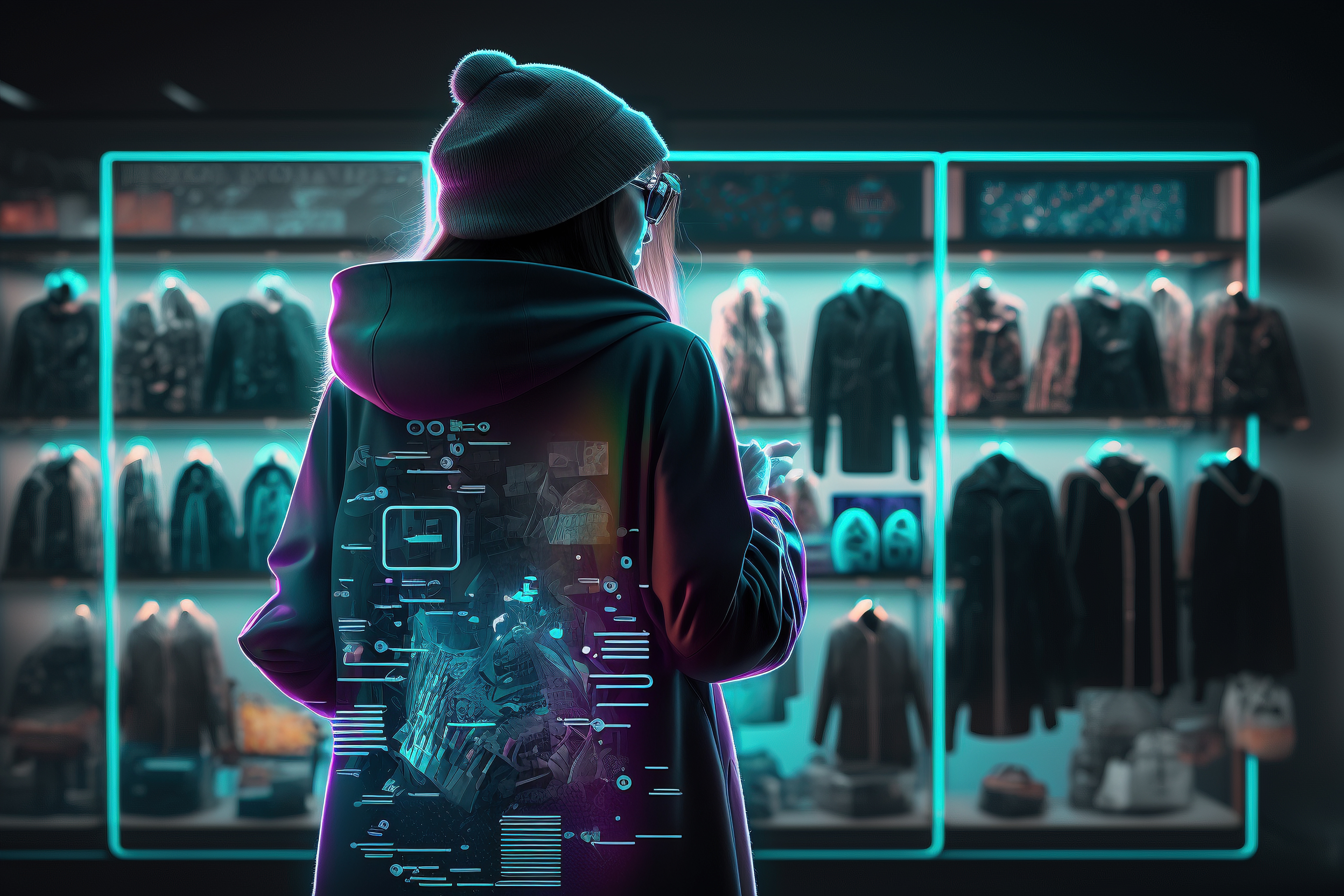Discover how major retailers like Carrefour, Sephora, and Walmart are incorporating artificial intelligence into their Product Experience Strategy today in this featured article by Akeneo partner, Unifai.

Keywords
We often see AI manifest itself into things like chatbots and virtual shopping assistants, but we’re also seeing retail giants utilize machine learning, process automation, and predictive analytics to improve internal operational efficiency and streamline repetitive, time-consuming tasks for their employees.
As the AI market in the retail sector is projected to reach $31 billion by 2028, it is imperative to spotlight those who are capitalizing on this technological trend. Let’s dive into how five different retailers have created practical applications of AI.
Carrefour, a titan in the retail industry, has taken a stride forward by integrating OpenAI's ChatGPT into its eCommerce platform.
Carrefour recently introduced an inventive tool: Hopla. This tool incorporates OpenAI's ChatGPT4 within its eCommerce interface. This groundbreaking advancement within the retail sector empowers customers to curate their shopping baskets based on personalized preferences.
Launched in June 2023, Hopla offers the following services:
By partnering with OpenAI, Carrefour positions AI at the core of its future retail development strategy. AI not only enhances customer experiences but also yields benefits in marketing and product data management, particularly in ensuring data accuracy.
A notable advantage is that this AI solution adheres to GDPR regulations, ensuring data privacy.
Overcoming initial reservations toward adopting AI advancements, Sephora is now employing AI to offer personalized product recommendations. Leveraging user-specific preferences and attributes, Sephora's digital transformation is in full swing.
A leading cosmetics and fragrance retailer, Sephora is accelerating AI development through the establishment of an AI Factory. Comprising a 12-member team, this initiative operates within the LVMH retail subsidiary's Digital&IT department. The project's goal is to optimize operations and enhance customer experiences across 15 countries.
To this end, Sephora employs the Dataiku platform on Google Cloud for the development of machine learning solutions that create:
This transformative approach expedites deployment in new markets and the development of innovative models.
A prominent French fabric retailer, Mondial Tissus has optimized geographic expansion and time-to-market by integrating ChatGPT AI through the Bee by Dataggo connector, in conjunction with Akeneo PIM.
This automated solution enhances the quality of product information and streamlines localization for international markets. Consequently, new assets are generated, product knowledge is enriched, and regulatory compliance is ensured. This strategy has facilitated expansion into new markets and elevated both employee and customer experiences.
Retailers and brands face the imperative to expedite time-to-market. Retailers such as Mondial Tissus manage a multitude of local and international suppliers, necessitating swift content deployment. AI proves instrumental in shortening time-to-market by:
AI-enabled translation capabilities expedite international endeavors, eliminating translation bottlenecks. By harnessing AI, companies liberate personnel to focus on high-value tasks.
American retail behemoth Walmart is embarking on an AI experiment at its Levittown store in New York. The endeavor, overseen by the in-house team "Kepler," aims to:
Additionally, Walmart leverages OpenAI's GPT-4 to offer conversational experiences while also utilizing other significant language models.
Good to know 💡
Walmart's initiatives transcend task-based chatbots, focusing on natural language understanding specific to the retail context.
Desirée Gosby, Vice President of Emerging Technologies at Walmart Global Tech, underscores the significance of generative AI for customer interaction, akin to the role of mobile technology.
Walmart has introduced a virtual fitting application coupled with AI.
Customers photograph themselves in undergarments, and the application overlays desired garments, replicating shadows and fabric folds. This innovation aims to reduce the 30% return rate of online orders, particularly apparel.
Zalando, the German online fashion platform, endeavors to curtail product returns and amplify online conversions through AI. Despite offering free returns, the company aims to minimize returns due to economic and ecological reasons.
Zalando introduced “virtual fitting rooms” that initially underwent testing on select items, then specifically on jeans—a highly returned category. Customers create a 3D avatar and virtually try various jean sizes, elevating jean retention from 28% to 40%.
Simultaneously, the "Size & Fit" team is crafting a body measurements feature for personalized advice. Zalando also intends to introduce an online personal shopper via ChatGPT that enables an intuitive and tailored exploration of Zalando's offerings.
Though these retailers are early adopters of generative AI, they are not alone in this venture. Curious about other retail giants bolstering their processes with AI?
Here's a glimpse:
As the retail landscape continues to evolve, it is crucial to forego uncertainty and harness the full potential of AI. Rather than dwelling on doubts, let’s focus on embracing this transformative technology to cultivate personalized and enhanced interactions across the entire customer journey. The fusion of artificial intelligence and human ingenuity promises an exciting and infinitely promising retail future for those ready to embrace it. Are you?
Start preparing your organization to take full advantage of the potential AI has to offer with a foundational Product Experience (PX) Strategy.

Explore how these 2025 Experience Award winners elevated product experiences by centralizing data, automating workflows, scaling globally, and...
Read more
Welcome to the digital shelf: the online space where products are discovered, evaluated, and purchased. Whether you’re aiming to boost visibility,...
Read more
As more brands are transitioning to Digital Product Passports (DPP), there are crucial steps that need to be taken to ensure that brands are...
Read more